This is a guest post by Phil Hill, a travel photographer from the UK based in Australia. You can see more of Phil’s great work at his travel photography blog or follow him on Facebook or Twitter.
With the release of the Nikon d800 and the Canon 5d mk3 many people will have no doubt begun checking their bank statements a bit more carefully and thinking about increasing that credit limit by a measly few thousand.
This got me thinking, how many bells and whistles do you actually need to take a great photograph anyway? Too many cameras are now available with enough fancy settings to give the geekiest of technology nerd’s nightmares.
Lets face it, these days 99% of photographs will never see printed paper, ending up on an innumerable amount of social networking sites, converting a large file from a full frame ultra mega pixel machine into web ready kilobytes and a pixelated 72dpi. Shooting poor images wont change from mobile to DSLR, your rubbish (and mine) will just be higher definition.
With this in mind I decided I would go out and shoot some landscapes with my girlfriend’s entry level and well-used Canon 1000d and its bog standard 18-55mm f3.5-5.6 kit lens. I figure as long as any camera can go fully manual in ‘M’ mode, I should be able to capture good images without having to resort to using the bell setting or even it’s whistle feature.
100th/sec @ f5.6 is always going to be the same regardless of what camera you are using (providing they are both pointing in the same direction), fully master exposure first.
I headed down to Perth’s City Beach to shoot a couple low light images and the lifeguard tower there. The only real extra piece of equipment you are going to need for this scenario is a tripod, essential when dealing with little light, slowing down shutter speeds. The great thing about using the 1000d was how light it was compared to mine; fitting into the palm of my hand. I did miss the LCD display on the top and the wheel on the back, though I think you could get used to that.
When starting out, I photographed my way through college and a good part of University with a Minolta X-700 that was older than me, before the days it was cool to walk around with a vintage film camera! Limited to a maximum of 36 shots with no preview screen to look at the histogram making you choose more carefully what to photograph instead of the digital scatter-gun approach, shoot first ask questions later.
My point is that with the ability to review instantly you should really be paying attention to that graph, the image is telling you what it needs. The aim of course is for a well-proportioned curve, rising in the middle and not too clipped in the highlights or shadows.
One thing worth pointing out though is that your camera loves grey, more than any other tone I am afraid. It is inherent to all camera meters, averaging out exposures based on its love for the mid-tone, pictures end up looking flat and dull. This is where manual mode comes into its own, overriding the camera’s decisions putting you back in full control. Tweaking the exposure perhaps 1/3 – 1 stop over or under (depending on what you are photographing) to add depth and contrast, getting this stuff right in the camera before you push around pixels in PhotoShop.
My shots from City Beach were a simple set up with the camera mounted on the tripod and exposure metered from the sky near the setting sun though not from the sun itself. From there I took a few test shots, made a few adjustments and settled with a little push to get that detail in the foreground. You can play around with shutter speeds too for varying degrees of water movement.
The bottom line of course is that to become technically proficient at taking photographs all you really need is the ability to control aperture and shutter speed and you can do that for far less money than many of the cameras on the market will openly admit too. Think of it as if learning to play football brilliantly barefoot, then going out to get a gleaming pair of boots – bells and whistles will only complement a solid set of skills.
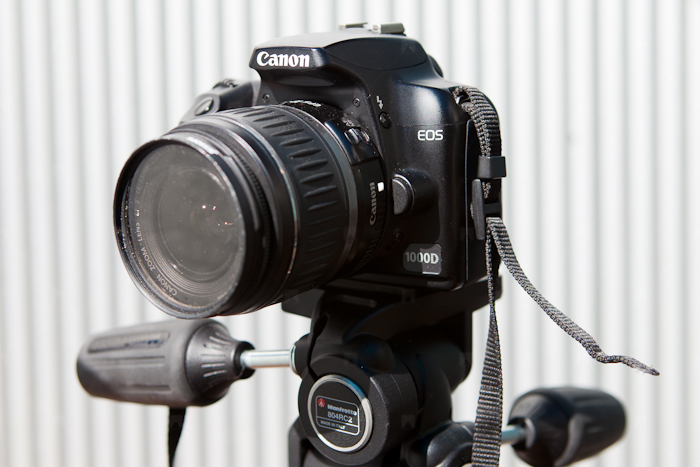
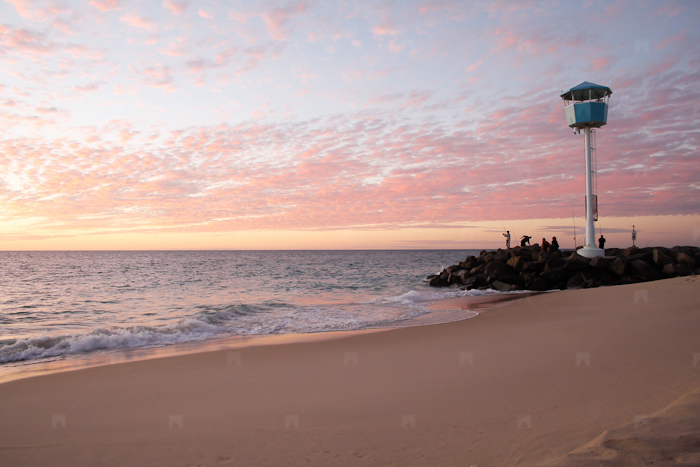
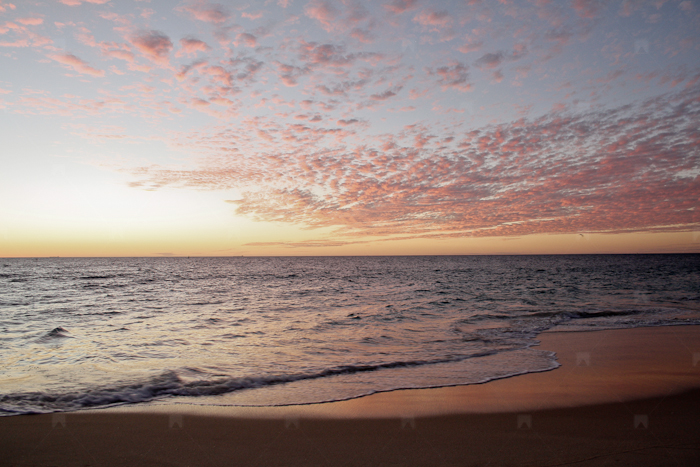
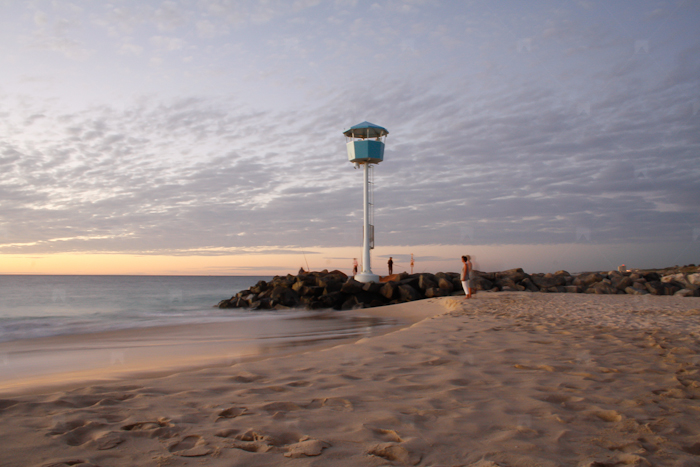

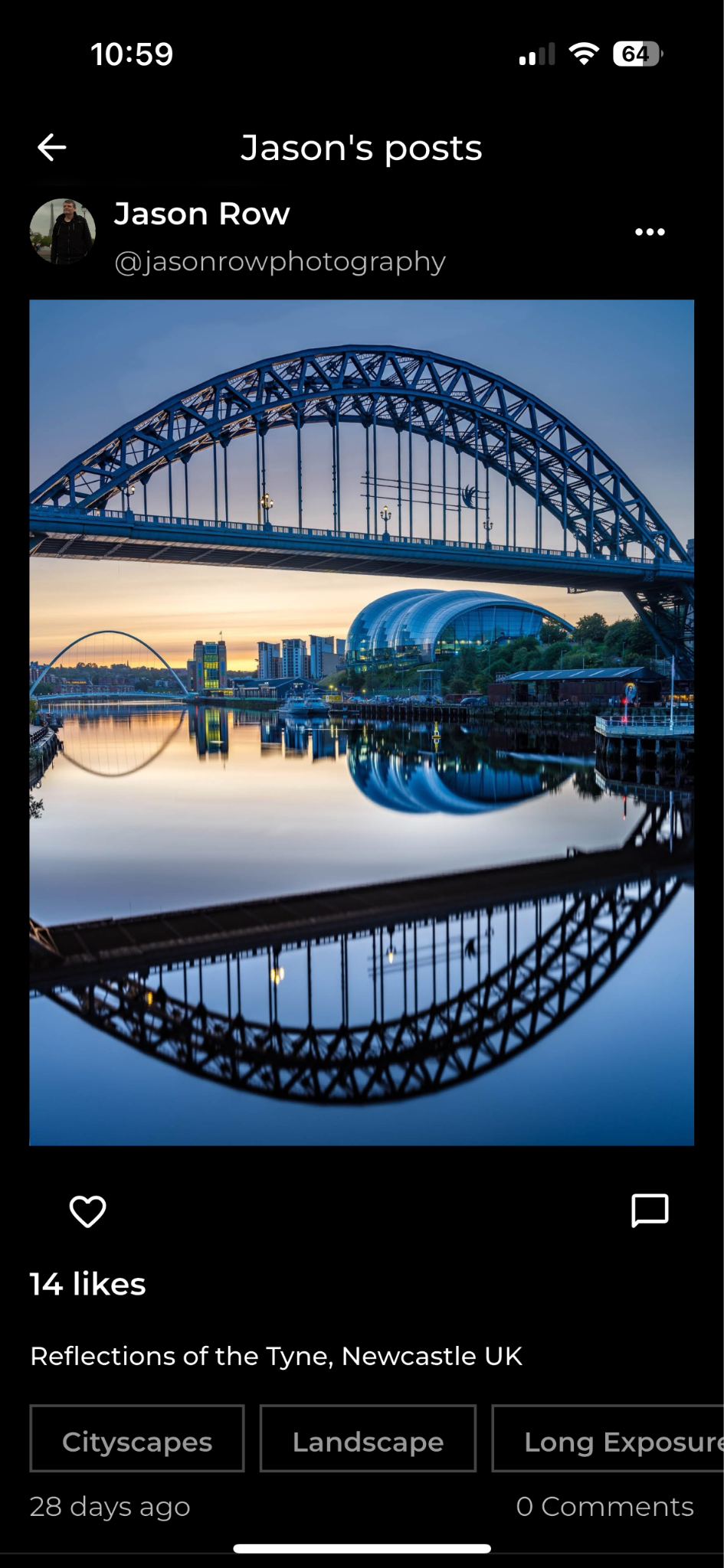
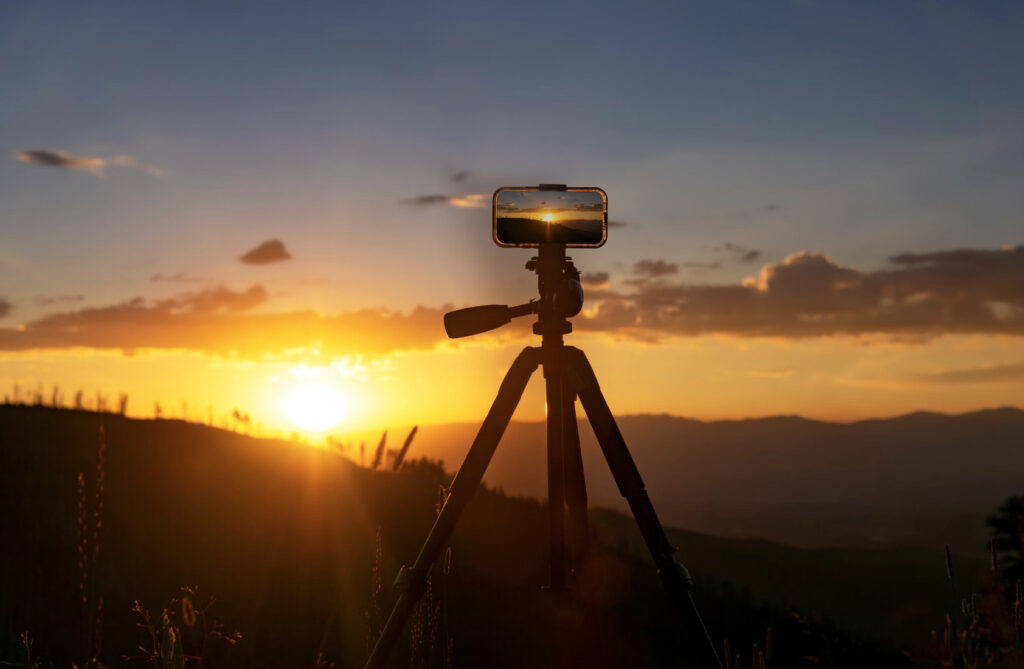

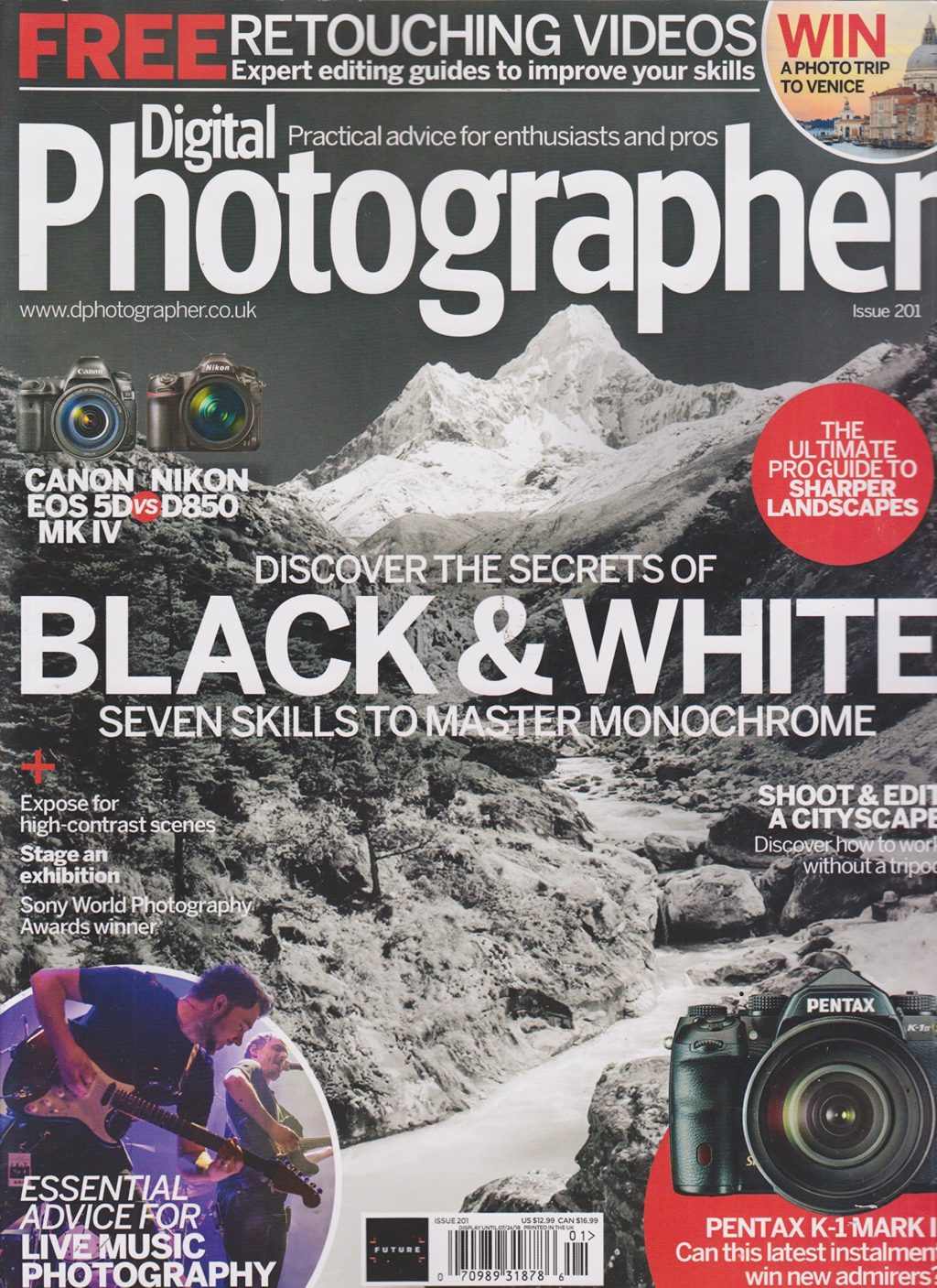
38 Comments
I’m still using a 400D and getting ok results.
This is great news for me, because I. am. broke!
You are so right! This has been a hobby-horse of mine for years. You get all the Gear-Nuts carrying on about the latest cameras and they prance around with big cameras and bigger lenses. When was the last time you went to an exhibition and saw people admire a photograph and say “Wow, what sort of camera did they use for this?” People could care less about the gear. It’s like going to dinner at someones place and during the meal saying “This is absolutely delicious! What kind of stove did you cook it on?”
Actually, that question about “what camera did you use?” is asked all the time. The answer should obviously be “who cares?” but to be more polite I normally say “a Canon.” Good blog post, btw. I wonder what kinda PC the author was using to type it.
Hahaha! Completely agree!
New to the whole camera thing…this is encouraging! Thanks.
This was a great article and one that my husband forwarded to me to make me feel better about not having a “Gucci” camera like my other writing/traveling friends. I’ve heard it before and actually received great pointers from a photographer about how to take wonderful pictures with my Sony Cybershot (point and shoot). It was worth hearing again!
P.S. Sarah’s comment is hilarious and duly noted.
I just have to accept I take terrible pictures instead of blaming my gear. It’s a tough pill to swallow!
I thoroughly agree, although it is nice to play with the bells and whistles now and again!
There was a great documentary on Uk television this week with David Suchet the actor following in the footsteps of his grandfather with his old M3. Very refreshing to watch, although admittedly he did get a very accomplished printer to produce his prints!
Entry level Professional DSLR like a Canon 50D is a great camera to have and is reasonably affordable. Not for its pixel rate or censor, but it can accommodate remote flashes, pocket wiz and the like and gives you more control when shooting in manuel. 1000D is limited as far as attachments go. Wouldn’t waste my money on one unless my intention was to be just a casual recreational Photographer.
Do your homework when buying a camera and think about the sort of Photographer you want to become, this should make your choice much easier when making a purchase.
Couldn’t agree more at the end of the day a camera is a light tight box with a hole in it no number of fancy modes will make you a better photographer. If you take crap pictures with a cheap camera they are not going to be any better with a more expensive one. My advice to anybody is learn how to take good photos in manual mode and bracket like mad using shutter speed or aperture or even altering the ISO and examine the results until you understand what does what. Anybody who describes themselves as a photographer can only do so if they are professional otherwise you are just someone who owns a camera – if I bought a few tools it doesn’t make me a mechanic!
While I understand the sentiment, it’s being a little elitist to say that unless you’re professional, you’re not a photographer.
I am a professional musician (amongst other things – and having made money in photography in the past).
I wouldn’t presume to say though, that just because another player doesn’t make his/her money at it, they they can’t be called a pianist.
But I do understand your frustration.
I’ve been saying for the longest time that it doesn’t matter what equipment is used in great photography. It’s the skill to know how to use what you have and the natural ability to take the photo.
never been about the gear…
while it IS about gear for many scenarios for professional photographers, I am really pained to see kids wielding those massive DSLRs in auto mode. They should just remove Auto from mid-range DSLRs. At least, no one would come up to me at a wedding and ask “photographer sir, how many megapixels is your camera… is it full frame… or worse still, i have a better camera!”
photos with absolutely out of focus subjects get so many likes on FB because the photo looks like “painting” LMAO. Digital has spelt trouble for us professional photographers.
I wish there was a “licence” to use a high end camera. Even if you had the money, you needed to pass a test to own one! 🙂
I believe for the 95% of photography out there, gear really doesn’t matter as long as you have a camera and a lens. For people who shoot in specialty fields, sports and architecture, you do need the correct lens at a minimum to accomplish your shoots. Architecture photographers don’t shoot towers with standard lenses… they need to use tilt-shift lenses and full-frame to capture correct shoots for architecture clients. Sports photographers can’t walk onto a football field, they need large telephoto lenses.
True, pretty much every other type of photographer (landscape, portraiture, street) that most people shoot could get by with a 5 MP camera body, a kit lens and a cheap $300 telephoto… but the specialty photographers need have to be a little gear focus because that is specific to what they need.
And I shoot architecture… I have the tilt-shifts but I don’t buy the expensive telephoto lenses that sports photographs use because I don’t need them. I have the cheaper Sigma 70-200mm that does fine for when I need it.
It never fails….every time there is a tech leap, some photographer comes out of the woodwork and proclaim, my old camera STILL works… It’s not the pencil, it’s the writer… Well duh… (face palm)
Now, coming back to tech, so what will ur camera do in a dimly lit tavern. Two pro photographers visit there, one has a 24-35 f3.5-f5.6lens with a digital cam which can go till iso400, and other has a 24 f1.4 with D700 at iso 6400, guess who goes home with a shot? A shot not taken, is not a shot not taken. A shot taken can be crap, but on the hands of the good photog it’s golden.
Now to sports, soccer… Which wud u rather have…. Manual focus 24mm or 300 f2 on a D3s
So please stop stating the obvious…. Happy shooting…. No need to boast that your old camera STILL takes pictures…
Sometimes it is only after you have all the gear is that you don’t really need it.
You may find a good P&S camera may meet a lot of your needs, especially for those straight forward subjects and shootong conditions.
more about having an eye for a picture
Nice work Phil. I particularly like the photos as I swim at City Beach every morning! Oh yeah, makes me feel good too that my trusty 450D is capable of taking great photos. Still, a 5D3 would be nice 🙂
Thanks, City Beach is quickly becoming one of my favorite Perth spots for beach pictures, I just love that tower! Underrated too, when you search pics you mainly get images of Cottesloe and Scarborough.
Here’s a counterpoint to your post that I read 2 minutes before this. What a coincidence, LOL!
https://danbaileyphoto.com/blog/duh-of-course-photography-is-all-about-the-gear/
Interestingly, Dan Bailey posted an article titled “I’ll Say it Again: Photography is Not
About The Gear” the day before:
https://danbaileyphoto.com/blog/ill-say-it-again-photography-is-not-about-the-gear/
I think perhaps some people have missed the point of my article (though, on the whole I have had a great response which is fantastic). Strip back the image making process to the very basics, master them without having to re-mortgage the house, gear only complements solid skills.
I know! And I understand the point being made. But the monotony and the stance people take on this is still amusing.
Great article Phil, and yes, it prompted me to write my “I’ll Say it Again…” post that you referred to.
Your point are spot on, skills are way more crucial to the process of creating good imagery than gear.
And regarding my “counterpoint” post to that article… let’s just say that apparently some people missed the humor. It was meant to play on the new camera hype that we’re all prone to getting whenever new gear is announced.
Thanks Dan, I appreciate the feed back.
It’s always funny how serious some people get, the further the ‘tongue in cheek’ the better I say.
“Good photography” isn’t about “becoming technically proficient at taking photographs” either.
If you have a great story to tell, minor problems with exposure/focus/etc. are just as insignificant as the camera you are using.
That is a great point too, content and context is of course everything.
There is always room to be more proficient with equipment you use I think.
My wife was so surprised to here me say that I was holding off on the 5Diii. I had a 5Dii but it found a new home – probably to someone who couldn’t even spell 5Dii. I replaced it with a 7D because of the looming rumors of the 5Diii. So I’ve had my 7D for just over a year and have recently started shooting Manual. I have been so pleased with my results and the new skills that I can’t really justify the upgrade or addition to the 5Diii. Manual is great. I love it!
I’m glad I came across this today. Only last night, I talked myself out of buying a new camera.
It was simply that I realised I can do everything I want with the camera I have.
In fact, I’m seriously considering selling all my DSLR gear and making do with just my little Canon G11.
Looking back at my work, I realise that my best shots have had little to do with the camera.
“There is nothing worse than a sharp image of a fuzzy concept”. Ansel Adams.
A few years ago, I bought the best camera I could afford (D90) then grew into it rather quickly. I acquired a few good lenses. I later upgraded to a D700 and now have a D800. Skills are important but I did save some money by not starting out with the most basic dslr. I like my camera and the photos I take. I could do the same with a lesser camera but i may as well have the best that I can afford so as not to want for more. I have nailed the technical aspects of photography, and still working on the artistic and aesthetics. Its a learning process. If anyone thinks my photos are garbage, that’s ok, they have the right to be a judgmental hater. Doesnt concern me at all.
Sorry to say this article annoys me. Most great landscape photographers would more often than not use grad filters in this scenario, or at very least take multiple exposures and spend time blending in photoshop. Good kit is a small part, but then so is photographic eye, knowledge, editing and publishing/marketing ability. It all adds up, but you wouldnt want to be using a low end camera for too long. You wouldnt get business.
Terry Richardson would disagree about the low end camera thing. He shows up to a lot of magazine shoots with a point and shoot.
I have the Canon 40D, it’s not the latest model but I love it!
A friend has the 60D and one thing I did notice in a recent studio shoot, this camera doesn’t have the sync socket for studio lights – I think I’ll stick with my trusty and much lived 40D thanks
IMHO I think the quality of the glass on the front of the camera makes more difference than the body.
I worked in an actual camera store for a while and was amazed at the technogeeks that wandered in, knew all about the auto this and compensating that of every new model- but never took photographs beyond the first couple of test rolls- now I look at my pile of old film cameras and realize they are ALL disposable. Digital, I keep an inexpensive knock around body with me all the time, a better one for studio stuff, throw away most of the pixels anyway and there you go. The iphone is the most used camera in the world at this point
“the digital scatter-gun approach…” made me laugh!
I agree to a certain extent, especially when you’re stopping down to f11/f18, with your camera sitting on a tripod capturing a still scene.
However as someone mentioned above, gear can help in many situations. Low light weddings for one, or sports photography. And yes photographers shot on slower/worse cameras back in the day, but technology means that their photographs could have been improved dramatically.
Gear isn’t important for a lot of photography, but in many situations it is important and does matter. I completely agree about incremental upgrades not really benefiting anyone except the camera companies sometimes. We are certainly getting to the point of diminishing returns.
After taking photos for 36 years I’ve figured out the most important aspect for me is composition.Because every photo I have put on my wall is for the wow factor and not for pixel peeping.I actually prefer my images to not be about the clarity but to have a bit of mystique!